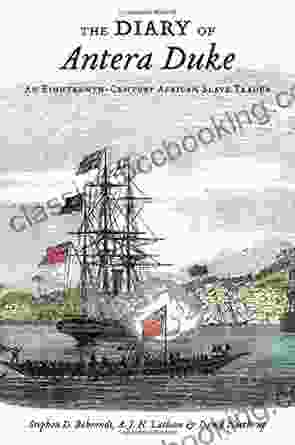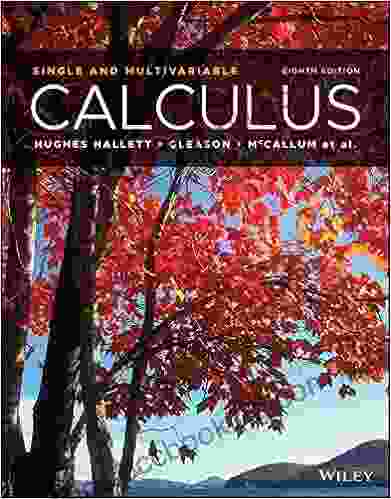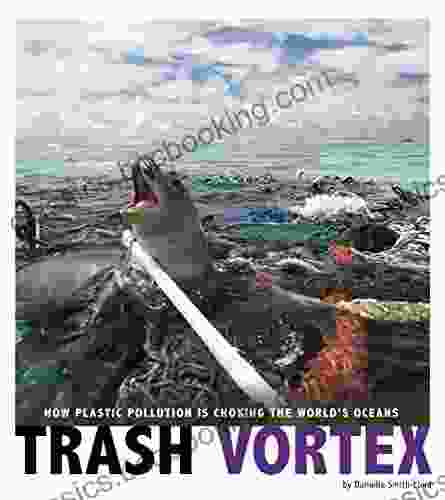How Plastic Pollution Is Choking The World Oceans Captured Science History

Plastic pollution is a major environmental problem that is harming the world's oceans. Plastic waste can take hundreds of years to decompose, and it can accumulate in the ocean, where it can be ingested by marine life or break down into smaller pieces that can be harmful to the environment.
The problem of plastic pollution is growing rapidly. In 2010, an estimated 8 million tons of plastic waste entered the ocean. By 2050, that number is expected to increase to 150 million tons per year.
Plastic pollution is a threat to marine life, the environment, and human health. It is important to take action to reduce plastic pollution and protect the world's oceans.
4.7 out of 5
| Language | : | English |
| File size | : | 49589 KB |
| Text-to-Speech | : | Enabled |
| Screen Reader | : | Supported |
| Enhanced typesetting | : | Enabled |
| Word Wise | : | Enabled |
| Print length | : | 78 pages |
Plastic pollution comes from a variety of sources, including:
- Land-based sources: Plastic waste from land-based sources can enter the ocean through rivers, stormwater runoff, and littering.
- Ocean-based sources: Plastic waste from ocean-based sources can include lost fishing gear, abandoned ships, and plastic debris from ships.
- Microplastics: Microplastics are small pieces of plastic that are less than 5 millimeters in size. Microplastics can come from a variety of sources, including the breakdown of larger pieces of plastic, the use of microbeads in personal care products, and the shedding of synthetic fibers from clothing.
Plastic pollution can have a variety of negative impacts on marine life, the environment, and human health.
- Ingestion: Marine animals can ingest plastic waste, which can block their digestive tracts and lead to starvation.
- Entanglement: Marine animals can become entangled in plastic waste, which can restrict their movement and cause injury or death.
- Habitat destruction: Plastic waste can accumulate in marine habitats, such as coral reefs and seagrass beds, and damage the ecosystem.
- Pollution: Plastic waste can pollute the ocean and release harmful chemicals into the environment.
- Climate change: Plastic waste can contribute to climate change by releasing greenhouse gases into the atmosphere.
- Tourism: Plastic waste can damage the tourism industry by making beaches and other coastal areas less attractive to visitors.
- Seafood safety: Plastic waste can contaminate seafood, which can pose a health risk to humans.
- Drinking water safety: Plastic waste can contaminate drinking water sources, which can pose a health risk to humans.
- Cancer: Some types of plastic waste can contain chemicals that have been linked to cancer in humans.
There are a number of solutions to plastic pollution, including:
- Reducing plastic use: We can reduce the amount of plastic waste that enters the ocean by reducing our use of plastic products.
- Recycling plastic: We can recycle plastic waste to reduce the amount of plastic that ends up in the ocean.
- Cleaning up plastic waste: We can clean up plastic waste from the ocean using a variety of methods, such as beach cleanups and ocean cleanup devices.
- Developing new technologies: We can develop new technologies to help us reduce plastic pollution, such as biodegradable plastics and plastic-eating enzymes.
Plastic pollution is a major environmental problem that is harming the world's oceans. It is important to take action to reduce plastic pollution and protect the world's oceans. There are a number of solutions to plastic pollution, and we all have a role to play in reducing our impact on the environment.
4.7 out of 5
| Language | : | English |
| File size | : | 49589 KB |
| Text-to-Speech | : | Enabled |
| Screen Reader | : | Supported |
| Enhanced typesetting | : | Enabled |
| Word Wise | : | Enabled |
| Print length | : | 78 pages |
Do you want to contribute by writing guest posts on this blog?
Please contact us and send us a resume of previous articles that you have written.
 Book
Book Novel
Novel Page
Page Chapter
Chapter Text
Text Story
Story Genre
Genre Reader
Reader Library
Library Paperback
Paperback E-book
E-book Magazine
Magazine Newspaper
Newspaper Paragraph
Paragraph Sentence
Sentence Bookmark
Bookmark Shelf
Shelf Glossary
Glossary Bibliography
Bibliography Foreword
Foreword Preface
Preface Synopsis
Synopsis Annotation
Annotation Footnote
Footnote Manuscript
Manuscript Scroll
Scroll Codex
Codex Tome
Tome Bestseller
Bestseller Classics
Classics Library card
Library card Narrative
Narrative Biography
Biography Autobiography
Autobiography Memoir
Memoir Reference
Reference Encyclopedia
Encyclopedia Dave Freer
Dave Freer Deborah Cowley
Deborah Cowley Dave Batista
Dave Batista David Fisher
David Fisher David F Swensen
David F Swensen David Brunner
David Brunner David Stanley
David Stanley David Nicholls
David Nicholls Dawn Barton
Dawn Barton David Mayer
David Mayer David Heska Wanbli Weiden
David Heska Wanbli Weiden David Hulett
David Hulett Deborah Falaye
Deborah Falaye Debbie Rose Myers
Debbie Rose Myers David Western
David Western David Adams
David Adams David Seow
David Seow David J Dennis Jr
David J Dennis Jr Dannion Brinkley
Dannion Brinkley Dartanya A Williams Sr
Dartanya A Williams Sr
Light bulbAdvertise smarter! Our strategic ad space ensures maximum exposure. Reserve your spot today!

 Asher BellDiscover the Enchanting World of Pokémon with "Mini Sticker My Collection Vol...
Asher BellDiscover the Enchanting World of Pokémon with "Mini Sticker My Collection Vol...
 Doug PriceUnveiling the Hidden Legacies of the Transatlantic Slave Trade: The Diary of...
Doug PriceUnveiling the Hidden Legacies of the Transatlantic Slave Trade: The Diary of...
 Ralph TurnerGift For Dementia Patient Picture Books: A Thoughtful and Meaningful Way to...
Ralph TurnerGift For Dementia Patient Picture Books: A Thoughtful and Meaningful Way to... Clarence MitchellFollow ·10.5k
Clarence MitchellFollow ·10.5k Isaac AsimovFollow ·7.6k
Isaac AsimovFollow ·7.6k Benjamin StoneFollow ·19.5k
Benjamin StoneFollow ·19.5k Edwin BlairFollow ·14.6k
Edwin BlairFollow ·14.6k Junot DíazFollow ·19.6k
Junot DíazFollow ·19.6k Justin BellFollow ·15.1k
Justin BellFollow ·15.1k Ashton ReedFollow ·18.4k
Ashton ReedFollow ·18.4k Leslie CarterFollow ·12k
Leslie CarterFollow ·12k

 Cameron Reed
Cameron ReedHow to Know When Language Deceives You
Unmasking the Power of...

 Robbie Carter
Robbie Carter50 Things To Know About Planning Home Schooling...
: The Power of Hands-On Learning Embarking...

 Julio Cortázar
Julio CortázarCalculus: Single and Multivariable, 8th Edition — The...
Calculus is the...

 Jaime Mitchell
Jaime MitchellBunnicula and Friends: A Spooktacular Tale of Mystery and...
In the quaint little town of Celeryville,...

 Josh Carter
Josh CarterPeppa Easter Egg Hunt: Join Peppa Pig on an...
Get ready for...

 Donovan Carter
Donovan CarterBoy Called Dickens: A Journey into the Childhood of a...
Delving into the...
4.7 out of 5
| Language | : | English |
| File size | : | 49589 KB |
| Text-to-Speech | : | Enabled |
| Screen Reader | : | Supported |
| Enhanced typesetting | : | Enabled |
| Word Wise | : | Enabled |
| Print length | : | 78 pages |






